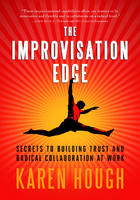Small children are the most powerful learning engines in the known universe.
-DANIEL QUINN, MY ISHMAEL
Promises to Keep
January 1 marks the New Year on our calendars, but doesn't September feel like the real start of the year? Maybe it's because we remember our own first day of school, stomach filled with butterflies instead of the breakfast we were too nervous to eat. Or perhaps it's a more recent experience of seeing children head off for their first day of school, backpacks full of newly sharpened pencils and blank notebooks. Going off to school fills a child with promise and unlimited possibility.
It's hard to believe that children in the United States didn't always go to school. Children of slaves were forbidden to learn to read, and farm children were needed for work. (Our school calendar still reflects this history of keeping children out of school when they were needed to harvest crops.) Children once worked in sweatshops to help support the family, and disabled children weren't guaranteed a public education until 1975. Today all children in the United States are guaranteed a public education, although we still have much work to do to make it the best education possible for every student.
Education prepares us for productive futures. UN Millennium Development Goal 2 calls on us to ensure that, by 2015, children everywhere, boys and girls alike, can complete primary school.
Around the world, 100 million children are still waiting for the promise of an education, denied the opportunity because they are girls, because they are needed for work, or because their families living on $1 a day can't afford school fees that average $50 per child in developing countries.
One day education may be so universal that children everywhere will be amazed to read in their history textbooks about a time when children did not go to school. But that time is not yet. Let's make a resolution to act so every child is educated. That's a promise worth keeping.
Imagine This…
Think about the ways your daily life depends on skills you learned in primary school. How did you learn to read, write, and do math? Now think about the productivity and the contributions to the world that would be unleashed if all of our world's children were able to go to school. Imagine their innovative thinking. Imagine their creative power!
Learning to Change the World
LEARN
Discover the hopeful stories of children who are finally able to attend school. Visit the Web site of the United Nations Girls' Education Initiative and click on "Multimedia," "The Gap Project," and "Real Lives" for stories, photo essays, and videos. E-mail the ones that inspire you most to friends and family.
Interview a teacher, the parent of a school-aged child, or the local Parent Teacher Association president to discover needs and opportunities to strengthen schools. Ask students what they think is needed, too.
Visit the Global Campaign for Education to learn how you can get involved to help meet Millennium Development Goal 2 of all children in primary school by 2015.
Read books, articles, and reports exploring challenges and opportunities in U.S. schools. Good places to start include Savage Inequalities by Jonathan Kozol, Uncertain Lives: Children of Promise, Teachers of Hope by Robert V. Bullough Jr., The Silent Epidemic: Perspectives of High School Dropouts at . and resources from the Education Trust . Invite others to join you for a book group to read, discuss, and act on these resources.
Learn about what local businesses are doing to provide internships for high school students, then spread the word and support those businesses. Check out Big Picture for help.
CONTRIBUTE
Commit to ensuring a girl's education all the way through primary school. For $2,500 a Room to Grow Girls' Scholarship will secure a girl's school participation for ten years.
Visit Web sites such as DonorsChoose that post and match teachers' requests with contributions that pay for needed supplies and other expenses large and small.
Round up used but not outdated computers to donate to schools or community programs where children without computers at home can do their homework. Or get involved with such organizations as Computers for Schools to get good computers to schools around the world. See chapter 10 for more ideas.
Organize a school-supply drive or a book drive through your school, workplace, civic group, or place of worship. Donate the supplies to a school in the United States or overseas.
Honor a student's graduation with a gift in his or her name to benefit other children's education, such as providing the $50 school fees for a child in a developing country. Learn more from UNICEF .
SERVE
Become a tutor. Go online to review the reading scores of local public schools. Call the school with the lowest scores and volunteer to help. Or volunteer with a community tutoring or Head Start program.
Organize a team to fix up a local school (painting, planting, donating books and computers, providing comfortable furnishings-any need that can be filled). Ask teachers and principals what kind of support they need most.
Involve others to plan your community's participation in the Global Campaign for Education's Global Action Week to focus attention on global education. Planning resources are available at and at .
Join with others who are advocating legislation that seeks to eliminate school fees in the developing world. RESULTS , a grassroots lobby dedicated to ending world hunger and poverty, is taking action on this initiative.
Sister Schools began in 1988 when Terry McGill was traveling in Uganda and saw incredible poverty. He asked himself, If I really am the kind of person I like to think I am, what should I do about this? After returning home to Seattle, McGIll was invited by local teachers to share the images of Ugandan school life with their students. Children at every school asked if they could send things to Uganda. Expecting to receive a few items he could fit into an extra suitcase, McGill agreed. To his surprise each school contributed hundreds of pounds of clothing and school supplies. Since then McGill has spoken in more than seventy-five schools to thousands of students and teachers, who have sent more than 150,000 pounds of supplies to their counterparts in Uganda. McGill has seen the life-changing impact of neIghbor-to-neighbor sharing, even if one neighbor is half a world away.
Start Sister Schools. Establish a relationship between a school in a developing country and your school, workplace, civic group, place of worship, or other group . (Read Terry McGill's story above.)
Travel to teach. If you have training as an educator, contact a service or development organization to explore a short-or long-term volunteer stint as a teacher or a teacher trainer. Look for options through or use an online search engine to find numerous opportunities that match your talents and resources.
Plan a work program to help build a school in a developing country. Assemble a team through your school, workplace, civic group, place of worship, or community. Again, search the Internet for current opportunities.
Children can be our teachers. The Uganda Rural Development and Training Programme Girls School in Kagadi uses a "two-generation"approach to education. Every semester the girls lead a parent workshop during which families plan "back home projects" to raise the standard of living in their household. Projects include creating or expanding a garden; building a latrine, kitchen, or house; and starting an income-generating venture.The girls become the agents of change in their families and inspire their parents to get involved in further educational ventures such as adult literacy programs. Source:
Assist in helping low-income students find college-funding sources. There may be sources in your own community, or you can find them through research in libraries or on the Internet. One such example is the Horatio Alger Association
LIVE
Read to a child in your life every day. Talk about what has happened in the story and what might happen.
Run for your local school board.
Make a commitment to one first-grader and her family that you will support her educational success from now through her completion of college.
Honor your own desires for continuing education.
Commit to a TV-free day at least once a week, with a more ambitious television-free goal in mind. Instead read for pleasure, engage in conversation, play games, and spend time outside.
Actions Make a Difference
Today three out of every four girls in developing countries attend primary school. This is a vast improvement over what it was just a decade or two ago. When girls are educated, economic productivity improves, mother and infant death rates decline, families have fewer children, environmental management increases, and the health, well-being, and educational prospects for the next generation improve significantly. And get this: providing girls with one extra year of education beyond the average boosts their eventual wages by 10 to 20 percent.














